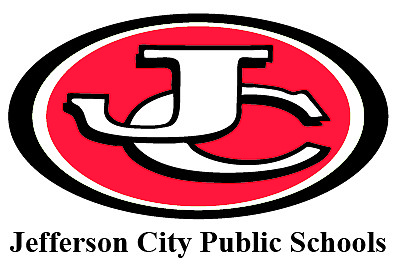The Jefferson City Public Schools Board of Education audit committee discussed the preliminary Fiscal Year 2018 budget, as well as district employees' credit card usage during a Tuesday meeting.
The committee was presented with data on credit card purchases for food of less than $20 - "things that might not be in a meeting," said board Treasurer Ken Theroff. The audit committee wanted to review purchases like this after the last meeting in early February, at which they discussed credit card policies and received recommendations from Central Bank representatives.
For the quarter ending Feb. 28, district employees made 14 food purchases under $20, totaling $215.05.
District CFO/COO Jason Hoffman explained these small purchases included soda for an end-of-year celebration, bagels for a morning meeting and rewards for students with perfect attendance records. One purchase at ECCO Lounge was for a business meeting over lunch.
JCPS Superintendent Larry Linthacum noted the district has not noticed any unusual expenses and does not suspect any wrongdoing.
"When it's in a big list, it's hard to see how much it's really coming to," Hoffman said of why the board wanted to more closely examine small credit card purchases on food. He said the board was happy to see such purchases aren't prevalent.
"We're asking everyone to justify every item," Theroff said, not just expenses under $20. He said the district's policy is every purchase receipt submitted to administrators must state what it was for.
The purpose of reviewing the small purchases was to determine if guidelines should be set for staff credit card purchases.
While there may not be a one-size-fits-all solution, what's important is to be "able to document and defend every expense," Theroff said. "There's always going to be some subjectivity" to allow faculty and staff room within the appropriate boundaries to act as they see fit.
Hoffman said the committee will explore the subject further.
Per a recommendation from Central Bank at the last audit committee meeting, the district also will explore reviewing inactive credit cards on a quarterly basis, with the intention to deactivate cards that have been inactive for 18 months.
Hoffman presented the committee with the district's preliminary budget for next year, too.
The district anticipates a positive $1.4 million change in revenue - mostly from local taxes, state aid and state sales tax collections - and about a $1.3 million growth in expenses for 2017-18. That translates into an operating fund balance of $256,825 less than this year's - compared to a $351,585 decrease this year over last year.
In other words, the final operating fund balance for the 2018 fiscal year is projected to be $18,284,739, compared to $18,541,564 for this year and $18,893,149 for 2015-16.
The operating fund balance is essentially how much money the district has on hand to get through any unforeseen expenses not already budgeted, district Controller Denise Pierce explained.
In terms of salary increases, the district's 750 teachers, librarians and counselors are projected to receive an additional $729 each. The district's 18 maintenance staff are also projected to see raises of $729 each, and the 80 custodians are projected to receive another $550 each.
Each of the district's 52 administrators is projected to receive, on average, another $1,700 in pay. Pierce said administrators, secretaries and professional support staff are not on salary schedules, so their raises reflect a 1.8 percent increase on their base salary.
Other groups of employees are projected to see raises from $350 each for 140 facilitators and aides to $850 each for 11 computer support staff. The district's 95 food service workers are paid hourly and are projected to collectively receive $26,000 in pay raises.
The cost of salary increases - including retirement, Medicare and Social Security expenses - is projected to total $1,115,558.
The district also plans to add five instructional coaches for grades K-5 at a cost of $350,000 and four full-time-equivalent positions at Thomas Jefferson Middle School at a cost of $200,000 to compensate for increased enrollment. The staff at Thomas Jefferson would be an administrative intern, two core class teachers and one encore teacher.
Core classes include math, science, English, language arts and social studies. Encore classes include music, art, physical education, health and computer.
Hoffman said of health insurance, the district is self-insured, hires a third-party administrator to review claims and pay bills, and hires a network provider to get access to a physician network and negotiate discounts.
Health insurance expenses have remained stable for the district since at least the 2012-13 fiscal year and are projected to be flat through the 2019-20 year.

